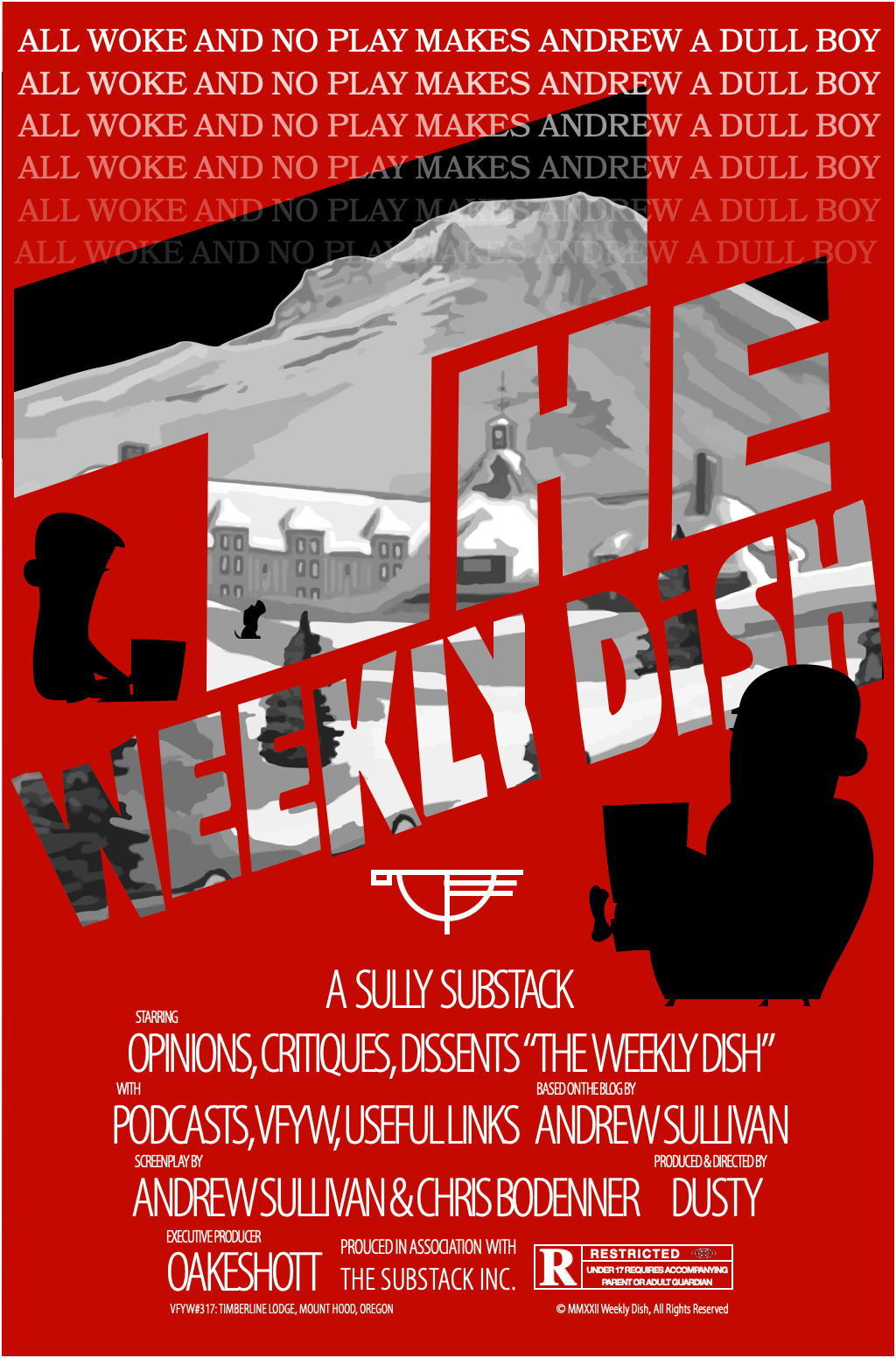
Andrew is off this week, recovering from hip surgery. I’m Josh Barro, author of the Very Serious newsletter, also on Substack. And this week I got a glimpse of what our politics would be like if Democrats had the political discipline of Republicans.
Or at least some Republicans. Last week, you may have seen that Senator Rick Scott released a bizarre policy agenda. The most eye-catching parts of his plan would make all Americans pay federal income tax — currently only about half do — and make all federal laws temporary. Scott runs the campaign arm for Senate Republicans, so in announcing the plan, he purported to speak for Republicans broadly. This is a break from Mitch McConnell’s strategy of letting Democrats dig their own grave while making no promises other than to stop the Dem agenda. Scott was basically acting as a one-man Squad, risking the prospects of his party with an unpopular and extreme agenda that is sure to turn off voters in the middle.
Asked by reporters about Scott’s freelance platform, McConnell was clear: Not a chance. “We will not have as part of our agenda a bill that raises taxes on half of the American people and sunsets Social Security and Medicare within five years,” the minority leader — favored to become the majority leader again next year — said firmly. “We will focus instead on what the American people are concerned about: inflation, energy, defense, the border, and crime.”
McConnell is the last politician I’d call a populist, but he understands popularism: that you should try to raise the salience of popular elements of your agenda, while dropping the unpopular ones — or at least not drawing attention to them. If Republicans can muzzle Scott, they intend to campaign on that short list of salient issues, where they can essentially just say: stop the madness; stop the “radical Dem agenda.”
Are Democrats ready to respond to this? The signs from Joe Biden’s State of the Union address weren’t great. Once he got past the discussion of Ukraine, his argument was essentially, “Things are getting better, because we’re working on it.” An incumbent has little choice but to make this argument. But there are still places where he needs to say and do more, and where he needs to push back harder on extreme elements in his party that would have him adopt unpopular positions and lose even more badly in November.
First, what Biden is getting right. The Ukraine crisis reduces the distance between the parties on defense issues, at least for now, and Biden has struck a consensus course: projecting strength and crushing Russia’s economy with sanctions, but not taking direct military involvement.
On crime, the president made headlines with his admonition that “the answer is not to defund the police. It’s to fund the police. Fund them. Fund them.” His separation from his party’s fringe on this issue isn’t new, but it’s always good to shout the difference.
He’s more or less stopped talking about the border crisis, which is probably the best thing he can do, politically — he won’t turn it into a political strength, and one silver lining of all these other problems is at least they reduce the salience of that one.
The biggest political hazards for Democrats lie in the first two issues that McConnell cited: inflation and energy.
On inflation, Biden is at least hitting the right empathetic notes. He’s past arguing that inflation is “transitory.” He knows Americans are upset about rising prices and expect him to fix the problem, and he has a number of popular policies he’s touting as inflation-fighting.
The problem is that inflation is genuinely mostly out of his hands: It’s driven by Covid and previously-enacted policies related to Covid. Biden’s biggest mistake on inflation was probably that last year’s American Rescue Plan was too large by hundreds of billions of dollars. But that’s water under the bridge, and it’s just one of the many reasons inflation is high right now. Going forward, the main way that inflation will be fought is through the Federal Reserve raising interest rates. Contrary to Biden’s rhetoric about fighting inflation through growth, that will work by cooling the economy, making it more costly for businesses to invest and consumers to take out mortgage loans.
All that said, Biden’s ideas to use executive and legislative powers to fight inflation — such as raising taxes on the rich, funding semiconductors and other tech in the US, and negotiating drug prices — generally have the virtue of being popular for reasons unrelated to their effect on inflation:
It’s true that Republicans overdid it on the tax cuts for corporations and high earners in 2017, and raising taxes on those groups would fight inflation by reducing the deficit.
Investments in semiconductor production might fight inflation over the long run by reducing the risk of future supply-chain disruptions, but even if they don’t, onshoring is very popular — people like hearing that things will be made here, stateside. Biden’s touting of how a bipartisan law could induce Intel to vastly expand its manufacturing investment in Ohio was one of the strongest parts of his speech.
Letting Medicare negotiate lower prices for prescription drugs is perhaps the most popular element of the Democratic party’s policy agenda.
Biden is smart to sell these ideas as inflation-fighting.
The main hole in the president’s political story around inflation has to do with the most hazardous of McConnell’s campaign points: energy. Gas prices have spiked because the global supply of petroleum products has not roared back in the same way that demand has during the roll-off of the pandemic. And voters are mad about gas prices, which are only likely to go higher due to the Ukraine crisis.
The key problem here is a market-driven one. The fracking boom of the past decade ended in a bust in which many producers lost their shirts, and producers are not eager to make big new investments in US production only to lose money on them again. Still, Biden could (and should) propose to influence the market so gas prices fall.
Especially in light of Russia’s increased aggression, a larger and more elastic US oil industry is a foreign policy imperative. We want our production to flex up when other countries’ production goes down, so gas prices stay relatively stable and the US is less beholden to Russia and the Gulf States. Biden pushing for a subsidy and loan-guarantee package to boost domestic oil production could be tied to a program to ensure that nuclear plants continue operating. Add to that the Democrats’ existing plans to subsidize renewables, and they’ll have a strong message of “energy independence” for November.
In the shorter term, a gas-tax holiday — suspending the federal tax until 2023 — would lower prices at the pump this summer. This policy has a reputation as a gimmick, but the Ukraine crisis adds justification for offering such a holiday as a bridge to policies that could boost US production.
Meanwhile, lawmakers in both parties are urging Biden to sanction Russia’s oil industry. This presents an especially appealing cudgel for Republicans to wield. If Biden doesn’t enact sanctions, they can call him soft on Russia; if he does, gas prices will rise further and they’ll blame him for it. So long as the existing sanctions are imposing sufficient pain on Russia — and that looks to be the case so far — Biden should resist these calls.
In short, to show he’s fighting inflation, the president needs to run, not walk, away from his party’s reputation for wanting higher gas prices to push people away from fossil fuels. And here Biden faces a big problem: his progressive wing.
In a SOTU response organized by the Working Families Party, Squad member Rashida Tlaib offered Biden a variety of recommendations that would, if taken, exacerbate inflation and help ensure that Democrats become a minority party after the midterms. Cancel student debt to produce “a transformative economic stimulus,” Tlaib urged. (In our output-constrained economy, stimulus would mostly create inflation, not real growth.) “Ban federal fossil fuel leasing,” she urged. (Read: raise gas prices.) “Direct federal agencies to reject permits for new fossil fuel projects.” (Read: raise gas prices.)
The agenda in her speech, if adopted, would be political suicide for Democrats. One obvious question is: Do progressives care if extreme and unpopular ideas cost them the moderates they need to to win in November and rule as a majority?
Not all of them do. “A smaller but more progressive Democratic caucus would be a more functional and healthy and coherent caucus,” declared Maurice Moe Mitchell, national director of the Working Families Party. If you want to hear more Dems prattling on about what Tlaib calls “care, not more criminalization” (read: responding to the murder spike with happy-talk), then this could be a great outcome. But if the Democratic caucus gets any smaller, it will be the minority caucus — which is not so good if your goal is to actually make laws.
Unfortunately, a lot of progressives are political hobbyists who are more interested in glorious and ideologically pure defeats than the messy business of governing. (This is a coalition that glorified Ruth Bader Ginsburg for her dissents.) You may have noticed Elizabeth Warren supporters during the 2020 primary adopting “blood and teeth” as a slogan, or even putting blood and tooth emojis in their Twitter display names. This is in veneration of Warren’s comments in 2010 about her effort to establish the Consumer Financial Protection Bureau: “My first choice is a strong consumer agency… My second choice is no agency at all and plenty of blood and teeth left on the floor.”
Of course, Warren won that fight, so she indeed got her first choice (at least until the Supreme Court stymied her). Yet her fans still focus on her second choice: a loss that simply gives the other side hell. It’s a Trumpian “but he fights!” for leftists.
Fortunately, Biden mostly knows better than this. He does not have the political death wish for the party that Tlaib and her ilk do. Still, his political judgment around popularity has not always been sound. He did, for example, allow his campaign staff to talk him into reversing a longstanding position by opposing the Hyde Amendment, an unpopular pander to the left on abortion.
As Biden tries to rally the middle this November, it would behoove him to pick more fights with those in his party who want to go down in a blaze of progressive glory. If environmental activists get angry that he’s doing too much to make oil abundant and cheap, great. If “defund the police” advocates criticize him for wanting too many police on the streets, perfect. Biden can improve his moderate bona fides by showing that the leftists in his party in fact think he’s too moderate.
And he should simultaneously take the fight to Rick Scott. Democrats should take Scott at his word that his radical campaign plan is the Republican governing plan — just like the GOP does when the Squad talks about the Green New Deal. And Scott has a better claim on influence in the party than Tlaib does — he runs the Senate Republicans’ campaign arm, and he clearly aspires to be majority leader or president.
Elections, after all, are a contest of relative popularity. And Democrats have experience with capitalizing on catastrophic error by their opponents, as with the wave of Tea Party nominees who cost Republicans winnable Senate seats all over the map in 2010 and 2012. If Biden can saddle the GOP with Scott’s tax-hiking and entitlement-cutting agenda, and if Biden can get some distance from the loons in his own party, he should be able to cut some losses in an election where he’s facing some frankly grim fundamentals.
(Do you have a dissent or other commentary in response to Josh’s column? Please email it to dish@andrewsullivan.com. The rest of the Dish below was put together by Andrew and Chris per usual. If you’re a paid subscriber, click here to read the full version of the Dish — including the dissents, the money quotes, the recommended reading, the MHB, the VFYWs, etc. Subscribe for the full Dish experience!)
New On The Dishcast: Jim Holt
He’s the author of Why Does the World Exist?, Stop Me If You’ve Heard This: A History and Philosophy of Jokes, and his latest, When Einstein Walked with Gödel. Andrew tees up the episode:
I’ve known Jim forever, and he’s rather hard to introduce, but he’s one of the liveliest and rudest conversationalists I’ve ever known, so I thought he’d be a great podcast guest. It’s a bit of a break from the deadly seriousness of the past few weeks. He goes at me over “The Bell Curve,” performs a rant desanctifying Hitchens, and discusses quantum mechanics and its current travails. A bit philosophical at first, the whole chat was a trip.
For two clips of Andrew and Jim’s convo — reflecting on their early days of being gay in the big city, and how their mutual friend Hitch got some big things wrong — head over to our YouTube page. Listen to the whole episode here. That link also takes you to a few other philosophical musings from readers and more continued discussion on the Ukrainian crisis. Meanwhile, a request from a reader:
First, let me say how very much I love The Dishcast and look forward to it every Friday. But I will get right to it: I have a dear neighbor who is 85 years old. He is one of the most interesting people I have ever met: a former Marine, Trappist monk for nine years, and has a degree in philosophy. He is also a big fan of yours from your days at The New Republic. I tell him all the time about your podcast, but because he has severe hearing loss, he cannot listen to the podcasts. I’m wondering if you have any transcriptions available? I would love to give him a subscription to your newsletter and podcast.
Andrew again:
We hear you, and we just hired a part-time research assistant to help with transcriptions and other tasks, so stay tuned. We asked our reader which episode her neighbor would like to read first, and she said John Mearsheimer, so we just transcribed that long episode in full — check it out here. These are for subscribers only. Sign up here if you’re interested in transcripts — many more to come! — and the entire Dish in your in-tray every Friday: all the dissents, features, suggested web reading, second and third posts, and, of course, the View From Your Window Contest (which was outside the paywall last week, so click here to scope out the results — it produced the brilliant graphic below, from the reader who calls himself “A. Dishhead”).
Home News
A reader can relate to the week Andrew has been having:
Sorry to hear about your hip surgery, and I hope yours goes as well as mine did. I haven’t noticed much difference between my steel hip and the bone one. My replacement was done a year ago tomorrow and it was probably the least painful surgery I’ve ever had. The only real discomfort was that it felt like I had a really large wallet in my back pocket. I’m not the bravest wimp on the block, but I have to say that I didn’t need any of their fancy drugs, and even the acetaminophen I was prescribed really wasn’t necessary. Bonne Chance!
Andrew responds:
Yeah it’s all a bit miraculous. The immediate result of the op itself was a little gruesome — a giant, discolored bump that looked like a dislocated hip — and the surgeon said I had “oozed” a lot, by which he seemed to mean I did a lot of bleeding. But I’m not complaining. Was able to walk up the 45 steps to my apartment the afternoon of the op! Sleep has been weird, and my brain is foggier than usual, but I should be back to normal functioning in a week.
With all our constant bemoaning of the state of the world in 2022, it remains one of medical miracles, new techniques, and ground-breaking drugs. I’m grateful.
The View From Your Window
Kiev, Ukraine, 8.14 am.
(Also, this video VFYW from Ukraine, flagged by a reader, shows an armored vehicle swerving to flatten a moving car.)
Dissents Of The Week: Trans Lives vs Trans Ideology
A reader responds to Andrew’s column from two weeks ago, “The Backlash Against Trans Extremism”:
I appreciate the work you’ve done over the last few years exposing the radical fringes of the left and right, but your latest column was a great encapsulation of how we get the terrible, anti-free speech bills we’re now seeing proliferate in red states. You say that you and your colleague looked all over for examples of where extreme trans ideology is being integrated in actual classrooms, but you found hardly any evidence. And then you turn right around and say it is “undeniable” that “many public schools have adopted” a radical view of sex and gender, and that the “imposition of the successor ideology” is a fait accompli. I just can’t see how you reached that conclusion.
I have two elementary-aged kids in school in a solidly blue city within a purple state. Our public school board has issued some inane statements about racial equity, but I’ve yet to see an example of overreach on sex and gender. I guess this all comes back to my fundamentally optimistic view of other humans, which may be unwarranted. But I want to at least suggest some greater balance in the conversation and more caution about how the danger is being described.
Go here to read Andrew’s response to that dissent, along with four others (about a thousand words total).
In The ‘Stacks
This is a feature in the paid version of our newsletter spotlighting about a dozen of our favorite pieces from other Substackers every week. This week’s selection covers CPAC, the effect of Putin’s war on the global economy, and news from the Humane Society. Here’s an example:
We survived another shitty February — and Matt Labash coped with a gorgeous film.
You can also browse all the substacks that we follow and read on a regular basis here — a combination of our favorite writers and new ones we’re checking out. It’s a blogroll of sorts. If you have any recommendations for “In the ‘Stacks,” especially ones from emerging writers, please let us know: dish@andrewsullivan.com.
The View From Your Window Contest
Where do you think it’s located? Email your guess to contest@andrewsullivan.com. Please put the location — city and/or state first, then country — in the subject line. Proximity counts if no one gets the exact spot. Bonus points for fun facts and stories. The winner gets the choice of a VFYW book or two annual Dish subscriptions. If you are not a subscriber, please indicate that status in your entry and we will give you a three-month sub if we select your entry for the contest results (example here if you’re new to the contest). Happy sleuthing!
The results for last week’s window are coming in a separate email to paid subscribers later today.
See you next Friday.








